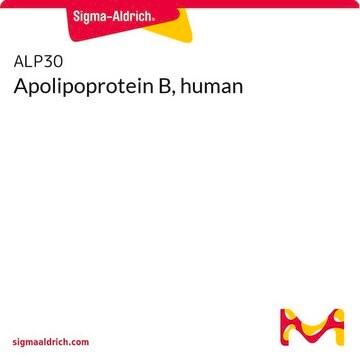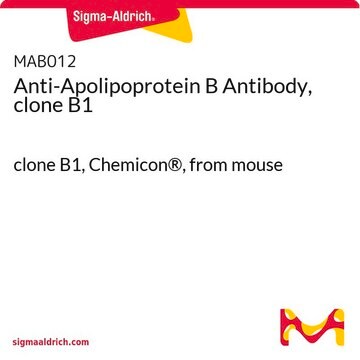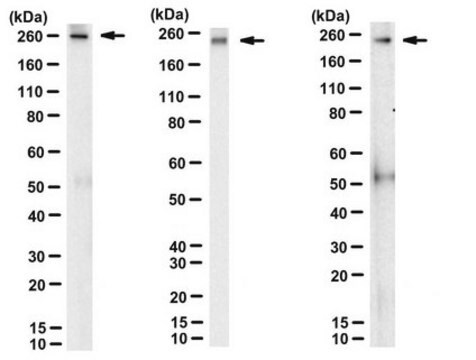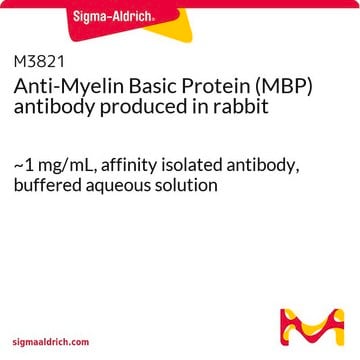AB742
Anti-Apolipoprotein B Antibody
serum, Chemicon®
Sinónimos:
ApoB
About This Item
Productos recomendados
biological source
goat
Quality Level
antibody form
serum
antibody product type
primary antibodies
clone
polyclonal
species reactivity
human
manufacturer/tradename
Chemicon®
technique(s)
immunoprecipitation (IP): suitable
western blot: suitable
NCBI accession no.
UniProt accession no.
shipped in
dry ice
target post-translational modification
unmodified
Gene Information
human ... APOB(338)
Specificity
Immunogen
Application
Metabolism
Lipid Metabolism & Weight Regulation
Immunoprecipitation
Optimal working dilutions must be determined by the end user.
Physical form
Storage and Stability
Analysis Note
Liver, HepG2 cells
Legal Information
Disclaimer
¿No encuentra el producto adecuado?
Pruebe nuestro Herramienta de selección de productos.
Storage Class
12 - Non Combustible Liquids
wgk_germany
WGK 1
flash_point_f
Not applicable
flash_point_c
Not applicable
Certificados de análisis (COA)
Busque Certificados de análisis (COA) introduciendo el número de lote del producto. Los números de lote se encuentran en la etiqueta del producto después de las palabras «Lot» o «Batch»
¿Ya tiene este producto?
Encuentre la documentación para los productos que ha comprado recientemente en la Biblioteca de documentos.
Nuestro equipo de científicos tiene experiencia en todas las áreas de investigación: Ciencias de la vida, Ciencia de los materiales, Síntesis química, Cromatografía, Analítica y muchas otras.
Póngase en contacto con el Servicio técnico








